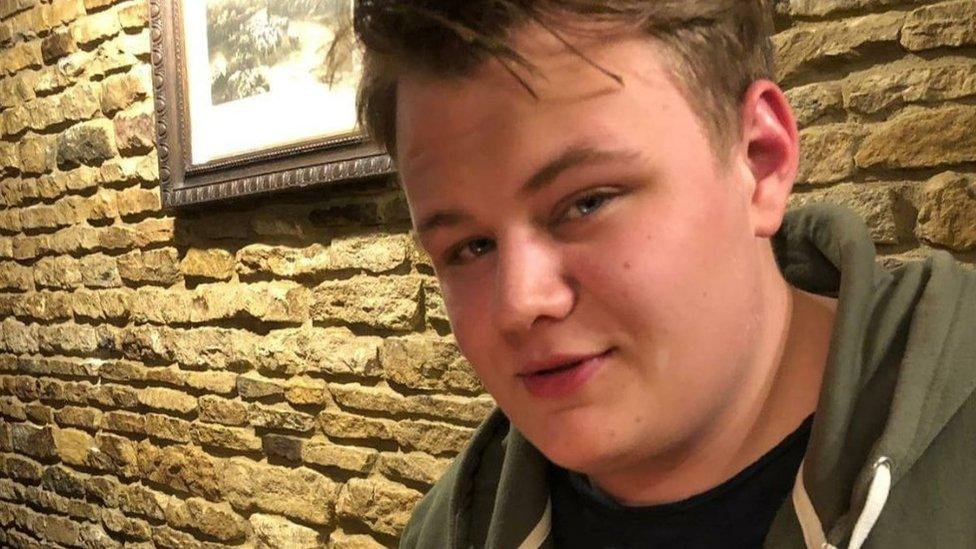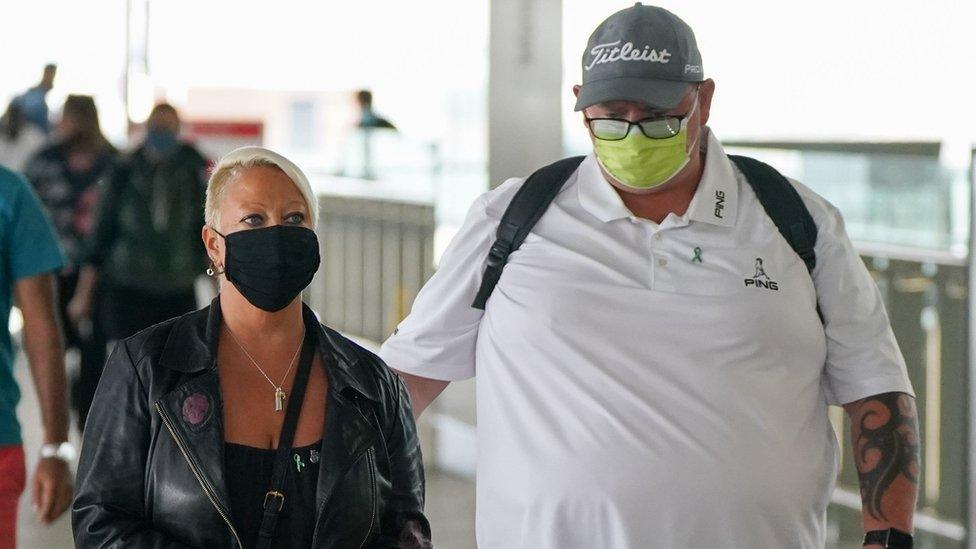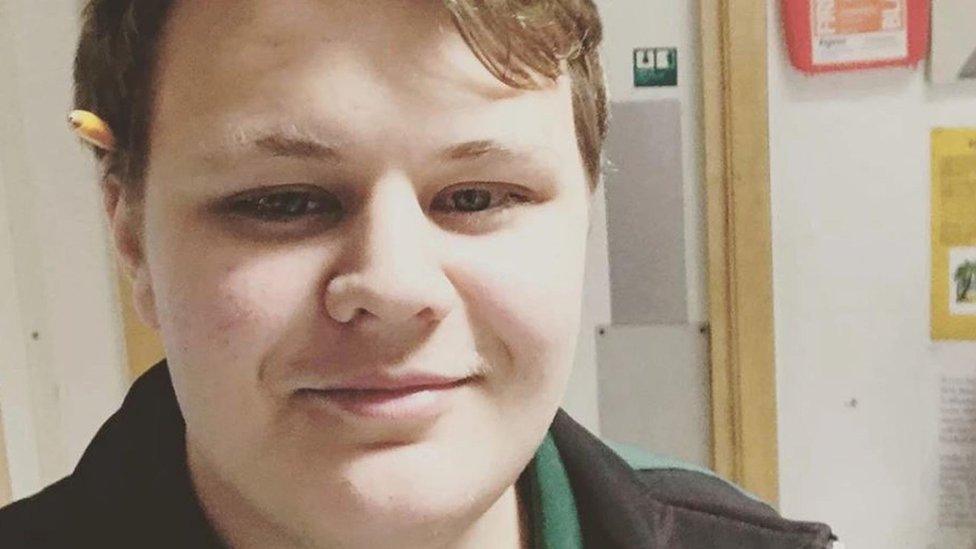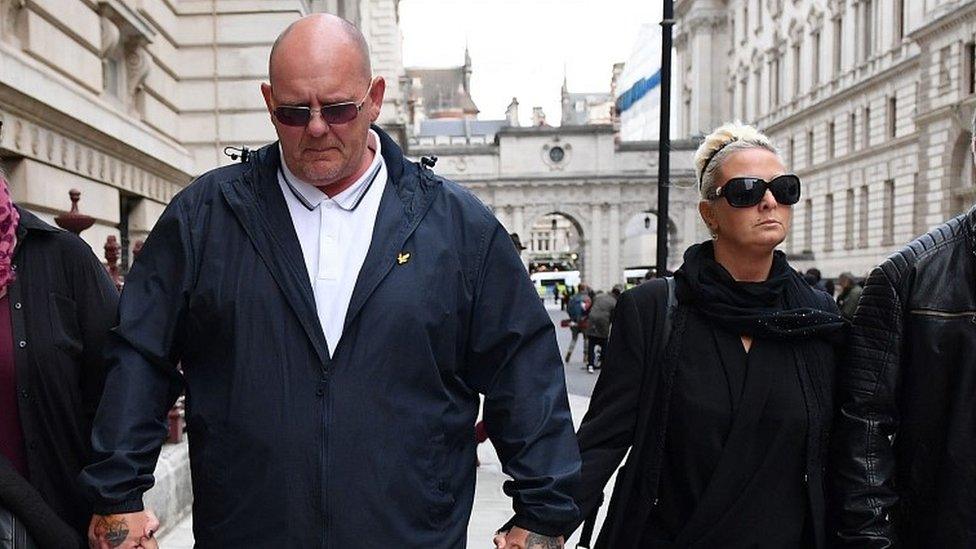Harry Dunn: Family aim to 'forge ahead' with criminal case
- Published

Harry Dunn died in hospital after his motorbike was involved in a crash outside RAF Croughton
Harry Dunn's family said they could now "forge ahead" with the criminal case into his death after a civil claim with the woman alleged to have killed him was resolved.
Mr Dunn, 19, died when his motorbike was hit by a car driven by US citizen Anne Sacoolas near RAF Croughton, Northamptonshire, in 2019.
An agreement over damages was reached on Tuesday.
His mother, Charlotte Charles, said she was "relieved" that part was resolved.
Details of the agreement reached between the parties involved in the civil case have not been disclosed.
In England and Wales, civil cases are brought when one private individual or body is in dispute with another and they can relate to questions of liability and damages, whereas criminal cases are when someone is charged with breaking the law of the land, which could result in sentences such as jail or a fine.

Charlotte Charles and Tim Dunn, the parents of Harry Dunn, flew out to the US for parts of the civil case
Mrs Sacoolas's car collided with the teenager's motorbike moments after she left the US base, where her husband Jonathan worked for a US intelligence agency.
She later left the country, claiming diplomatic immunity.
The civil claim against Mrs Sacoolas was brought in the US state of Virginia.
The Alexandria District Court heard Mr and Mrs Sacoolas' work in intelligence was a "factor" in their departure from the UK, as they left for "security reasons".
In December 2020, the Crown Prosecution Service (CPS) authorised Northamptonshire Police to charge Mrs Sacoolas with causing death by dangerous driving.
An extradition request for Mrs Sacoolas to be brought to the UK was rejected by the US government.
However, the UK authorities are continuing to press for her to return to the UK to face the criminal charge.
Foreign secretary Liz Truss raised the matter with US Secretary of State Antony Blinken at the United Nations General Assembly in New York this week.
Ms Charles told BBC Breakfast the civil claim agreement was "another step in the process".
"It's been a really hard slog the last couple of years, having both the civil case and the criminal case almost running parallel to one another," she said.
"It's a big relief that one part of it is done and we can now forge ahead and work with the CPS and trust the CPS to bring the criminal case to a resolution too."
How the death of teenager Harry Dunn became a diplomatic struggle between the UK and US
Spokesman Radd Seiger said the family were "very confident" the criminal case would be brought soon.
Asked about the possibility of an extradition, he said: "Whether she comes back physically or attends a trial remotely from the US we simply don't know at this stage, but it's time for this family to let the CPS do its work."
Ms Charles said the family was not opposed to a virtual trial.
"We're just very much looking forward to the day the CPS can bring this prosecution in whatever form that may be," she said.
"We need to try to move forward with our lives at some point soon. It's been extremely tough."

Find BBC News: East of England on Facebook, external, Instagram, external and Twitter, external. If you have a story suggestion email eastofenglandnews@bbc.co.uk, external
- Published21 September 2021

- Published21 September 2021

- Published27 August 2021

- Published12 May 2020

- Published22 July 2020
